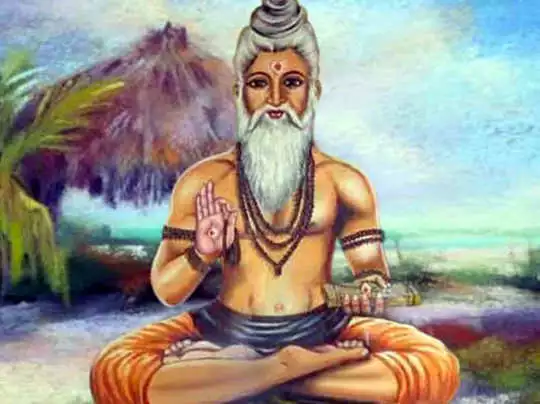Explore Gotras

Kamboja: A Revered Sage in Hindu Tradition
Sage Kamboja is an ancient and respected figure in Hindu tradition, associated with Vedic wisdom, warrior ethics, and spiritual teachings. His name is closely linked to the Kamboja region and people, who were known for their martial powers, scholarship, and trade. While direct references to Rishi Kamboja are scarce, his influence is seen in the Dharmic traditions, Vedic literature, and historical texts.
1. Origins and Lineage
- Kamboja in the Rishi Tradition:
- Sage Kamboja is often associated with the ancient Kamboja tribe, a warrior clan mentioned in Vedic and epic literature.
- He is believed to have been a spiritual guide and teacher, imparting wisdom on both martial discipline and dharma.
- Kamboja in the Rishi Tradition:
- Parents:
- Specific details about Kamboja’s parentage are unclear, but he is considered part of a prestigious lineage of sages and rulers.
- Parents:
- Association with Gotra:
- The Kamboja Gotra is not widely mentioned, but people from the Kamboja lineage were known for their warrior traditions, scholarship, and governance.
- Association with Gotra:
2. Kamboja’s Role in Hindu Mythology
- Kamboja’s Contributions:
- He is believed to have been a wise ruler, sage, and teacher, guiding his people in both warfare and spiritual practices.
- His teachings emphasized the balance between duty (karma), righteousness (dharma), and knowledge (jnana).
- Kamboja’s Contributions:
- Stories in Hindu Texts:
- The Mahabharata and Puranas mention the Kamboja people, often described as fierce warriors and skilled horsemen.
- Some traditions trace their spiritual and ethical guidance to a sage named Kamboja, who helped preserve Vedic knowledge and warrior ethics.
- Stories in Hindu Texts:
- Connection with Other Sages:
- Kamboja’s lineage may have been connected to other warrior-sages like Parashurama, who upheld martial discipline and dharma.
- His influence likely extended to military and political philosophy, along with spiritual teachings.
- Connection with Other Sages:
3. Kamboja’s Contribution to the Vedic Tradition
- Vedic Knowledge and Teachings:
- He was known for his deep knowledge of the Vedas and warrior ethics, ensuring that the principles of dharma were followed in governance and warfare.
- His teachings contributed to the understanding of statecraft, ethics, and military science.
- Vedic Knowledge and Teachings:
- Teachings on Dharma and Ethics:
- His philosophy emphasized honor, discipline, and righteous leadership.
- He taught that a true leader must balance strength with wisdom, ensuring that justice and morality prevailed in society.
- Teachings on Dharma and Ethics:
4. Kamboja’s Role in Hindu Tradition
- Role as a Spiritual and Political Guide:
- Sage Kamboja was regarded as a mentor for warriors and kings, shaping their understanding of governance, warfare, and spirituality.
- Role as a Spiritual and Political Guide:
- Influence on Later Texts:
- His principles of righteous war (dharma yuddha) and ethical governance influenced later texts on statecraft, including the Arthashastra and Dharmashastra.
- Influence on Later Texts:
5. Kamboja’s Legacy in Hinduism
- Spiritual and Cultural Influence: His teachings helped shape the warrior ethics, governance, and military traditions in Hindu culture.
- Gotra and Marital Traditions:
- The Kamboja Gotra is linked to warrior clans and Kshatriya traditions, with a strong emphasis on martial discipline and statecraft.
- According to Hindu customs, marriage within the same Gotra is prohibited, ensuring the preservation of spiritual and ancestral traditions.
- Gotra and Marital Traditions:
6. Kamboja’s Influence in Hinduism
- Preservation of Vedic and Warrior Knowledge: His contributions ensured the continuity of Vedic teachings and ethical principles in warfare.
- Impact on Hindu Thought: His name remains associated with warrior traditions, governance, and spiritual guidance, influencing both historical and mythological narratives.
7. Conclusion
Sage Kamboja is an important figure in Hindu tradition, known for his wisdom in Vedic knowledge, statecraft, and warrior ethics. Though direct records of his life are limited, his influence can be seen in the preservation of dharma, governance, and martial traditions. His legacy endures through historical accounts, warrior ethics, and Hindu philosophy, making him a key figure in both spiritual and political discourse.
